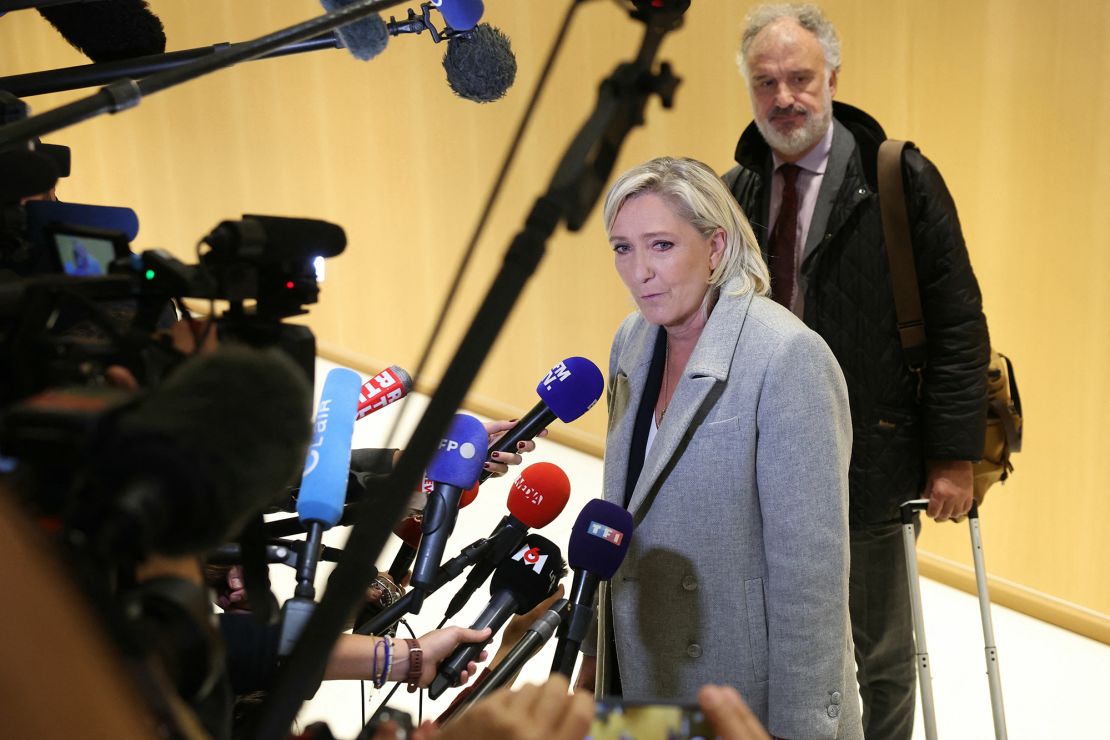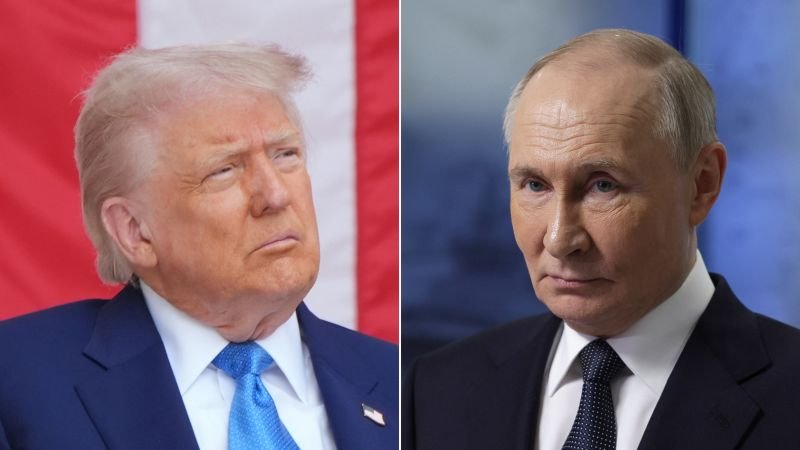Paris
CNN
—
French far-right figurehead Marine Le Pen has been banned from running for political office for five years after being found guilty of embezzling European Union funds, in a politically explosive ruling that has shattered her hopes of winning the presidency in 2027.
A Paris court also handed Le Pen, who was the frontrunner for the next election, a four-year prison sentence with two years suspended, to be served under house arrest, and a €100,000 ($108,000) fine. Le Pen will file an appeal, her lawyer said.
Her party, National Rally (RN), was ordered to pay €2 million in fines for the €4.1 million that it was accused of embezzling.
The court’s presiding judge, Bénédicte de Perthuis, said Le Pen’s actions amounted to a “serious and lasting attack on the rules of democratic life in Europe, but especially in France.” She said Le Pen’s immediate ban on standing for office was tied to “democratic public unrest” that would result from the election of a person convicted of embezzlement.
But the decision itself looks set to spark significant unrest. Jordan Bardella, Le Pen’s protégé who succeeded her as RN’s president, said it was not only Le Pen “who is being unjustly condemned: it is French democracy that is being executed.”
Marion Maréchal, Le Pen’s niece and a Member of the European Parliament for a rival far-right party, said her aunt had “led our side on the path to victory. This is her only guilt, and that is why she is condemned.”
Calm and composed as she entered the court on Monday, greeting supporters, Le Pen grew increasingly agitated, shaking her head as the court president spent more than an hour detailing the embezzlement scheme.
“The question therefore arises in a singular way in this criminal case which makes its decision ‘in the name of the French people.’ The court must not ignore the requirement to seek a social consensus,” the presiding judge said.

De Perthuis said her fellow judges had weighed the “two risks” in their sentencing: the risk of a person convicted for embezzlement being elected for political office and the “major risk to public order” if a likely presidential candidate was banned from running.
Le Pen left the courthouse as she was invited by court officials to hear her full sentencing, then refused to answer questions from journalists as she arrived at her party’s headquarters in Paris.
Le Pen, her National Rally (RN) party and more than 20 of its members were convicted of using European Parliament money to pay staff who were in fact working for RN in France. Nine members of the European Parliament, including Le Pen, and 12 assistants were found guilty.
The court ruled that Le Pen had used four party employees as parliamentary assistants, including her personal assistant and her bodyguard, misusing European Union funds for her own political party.
Le Pen and her colleagues embezzled more than €4 million over more than 11 years, the court ruled.
The decision has scuppered Le Pen’s ambitions to win the Élysée Palace at her fourth attempt in 2027, when President Emmanuel Macron will be unable to seek a third consecutive term.
Le Pen had branded the case against her a “witchhunt,” mirroring language that US President Donald Trump used against legal proceedings that targeted him.
Her right-wing European allies also quickly rallied to her defense after the decision.
“Je suis Marine,” Viktor Orban, Hungary’s prime minister and a champion of socially conservative politics in Europe, posted on X following the conviction, with Italian far-right leader and Matteo Salvini slamming the decision.

The Trump administration has also railed against perceived attacks on far-right politicians in Europe, including a court decision to re-run the Romanian presidential election, which saw a surprise win by a far-right candidate.
Administration officials, most notably US Vice President JD Vance, have publicly backed far-right groups in Europe, including the anti-immigration Alternative for Germany (AfD) party in Germany.
Shortly after Le Pen’s sentencing began, the Kremlin said that her conviction showed Europe was “trampling on democratic norms.”
At the time of her trial, even former Macron ministers came out in protest at the idea of her losing the right to stand for office.
Current French Justice Minister Gerald Darmanin posted on X in November that it would be “profoundly shocking” if she were to be barred from elections.
Le Pen’s conviction is the latest in a long line of financial irregularities committed by prominent French politicians. Former President Nicolas Sarkozy is currently awaiting sentencing for corruption and influence peddling.
Sarkozy had already been convicted in 2021 of corruption and influence peddling, with a three-year prison sentence, two years of which were suspended. He did not go to prison but was obliged to wear a GPS-tracking ankle bracelet.
























